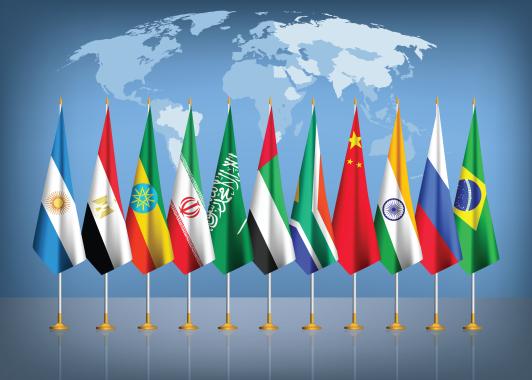BRICS and the Political Economy of International Relations
BRICS, an acronym for Brazil, Russia, India, China, and South Africa, represents coalition in the global political economy. Established to encourage cooperation among emerging economies, BRICS aims to enhance political, economic, and cultural ties among its members.
Definition and Formation
BRICS is a grouping of five major emerging economies. It began as BRIC in 2006 when Brazil, Russia, India, and China united. South Africa joined in 2010, completing the current composition. The formation aimed to create a platform for dialogue and cooperation among these nations, promoting peace, security, and sustainable development in a multipolar world.
Member Countries
- Brazil: The largest economy in South America, known for its agricultural output and natural resources.
- Russia: A energy supplier globally, with considerable military capabilities.
- India: A rapidly growing economy, boasting a vast consumer market and a robust IT sector.
- China: The second-largest economy, recognised as a global manufacturing hub and major investor.
- South Africa: Acts as a gateway to Africa, rich in minerals and resources.
Economic Cooperation
BRICS promotes economic collaboration through several mechanisms:
New Development Bank (NDB)
Established in 2014, the NDB finances infrastructure and sustainable development projects. It aims to support member countries’ development needs.
Contingent Reserve Arrangement (CRA)
The CRA serves as a financial safety net. It provides liquidity support and precautionary instruments to member countries facing economic challenges.
Trade Relations
BRICS focuses on increasing intra-BRICS trade. The aim is to reduce dependence on Western economies and enhance economic resilience.
Political Objectives
BRICS has several political goals:
Reform of Global Governance
The group advocates for more equitable representation in global institutions like the IMF and World Bank. This reform aims to reflect the changing dynamics of the global economy.
Multipolarity
BRICS promotes a multipolar world order. This approach seeks to counterbalance Western dominance in international affairs.
Collective Security
Member countries collaborate on security issues, including counter-terrorism and addressing regional conflicts. This cooperation enhances regional stability.
Cultural and Social Cooperation
BRICS encourages cultural exchanges and social initiatives:
People-to-People Exchanges
Initiatives are in place to enhance cultural ties among member nations. These initiatives encourage mutual understanding and respect.
BRICS Youth Summit
This summit engages young people in discussions
Challenges and Criticisms
BRICS faces several challenges:
Diverse Political Systems
The member countries have different governance structures and political ideologies. This diversity can complicate consensus-building.
Economic Disparities
There are differences in economic development and growth rates among member states. This disparity can lead to tensions in collaboration.
Geopolitical Tensions
Border disputes and strategic rivalries, particularly between India and China, pose challenges to unity within BRICS.
Coordination Issues
Reaching a consensus on key issues can be difficult due to differing national interests and priorities.
Recent Developments
BRICS continues to evolve with recent developments:
Expansion Talks
Discussions are ongoing
Impact on Global Economy
BRICS influences the global economy:
Emerging Market Influence
The BRICS nations account for a substantial portion of global GDP and population. Their collective economic power is reshaping global trade dynamics.
Investment Trends
Increased investment flows among BRICS members and into developing regions are evident. This trend supports economic growth and development in these areas.
Alternative Economic Models
BRICS promotes development models that differ from Western neoliberal policies. This approach encourages diverse economic strategies tailored to local contexts.
Future Prospects
The future of BRICS holds several possibilities:
Strengthening Alliances
There is potential for deeper economic and political ties among member states. Enhanced cooperation could lead to greater collective influence.
Global South Leadership
BRICS aims to position itself as a leader for developing countries in international forums. This leadership can amplify the voices of emerging economies.
Sustainable Development Goals (SDGs)
BRICS is committed to achieving the SDGs through collaborative efforts. This commitment puts stress on the group’s dedication to sustainable and inclusive development.


